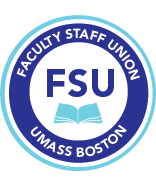The Point: When We Fight, We Win
4/4/2022
(Special thanks to Lorenzo Nencioli—even more than usual!— for his help in getting this week’s blast together.)
Some weeks it is just pure joy to serve as communications director for this union of ours. I’m not saying it happens often but occasionally it does! My joy this week grows from the simple realization that we are witnessing an inspiring series of labor victories around the country that hit one historic height with the Amazon news coming out of Staten Island. I have no doubt that many of you have been following the exciting news but I thought that—just in case you have been overwhelmed by the (un)usual demands of life in a pandemic—I would quickly summarize some of the top stories from around the country. Plenty of battles ahead, but here are some good reminders that as the rally and picket line chant puts it “when we fight, we win.”
1. Amazon Labor Union. This is headline news so I will not go on too much about it. The successful unionizing vote in Staten Island at an Amazon warehouse—initial results suggest that this union is forming with over 55% of the vote—is truly historic. This is a story that labor historians and activists will be studying for years: what is perhaps most striking about this organizing drive is that it was done by an independent group of workers not affiliated with a larger union. It is also stunning that this successful multiracial alliance did its work in the face of fierce union-bashing activity on the part of management. You can read about this thrilling effort plenty of places, but here is one good summary. The success of the Staten Island drive, taking place in a much different work context from ours, still serves as an importer reminder that grass roots collective action will always be the most important sign of union strength. Management cedes nothing without a fight, even here where supposedly we are on the same “team.” I remember some years back attending a bargaining session and being shocked when I looked up Joseph Ambash, our administration’s union-busting lawyer. This is the kind of guy they will always send to fight us: imagine what he gets paid an hour to try to stop us from achieving a healthier and more just workplace!
2. Howard University. I am sure that many FSU members have been watching this one especially carefully. Literally hours before they were scheduled to go on strike, hundreds of contingent faculty members at Howard University came to a tentative agreement with management there. It was especially heartening to track the support these non-tenure track faculty from the students at this crucially important institution which offers more educational programs than any other HBCU (Historically Black Colleges and Universities). Many of the issues on the table at Howard—from basic pay issues in an expensive city to job security—will be strikingly familiar to FSU members. Initial signs are that these dedicated faculty members at this urban R2 institution achieved a good agreement that they can continue to build on.
3. Starbucks The successful organizing of a number of café locations around the country, including at the New York City Roastery, is almost as surprising as the Amazon victory. One thing to note is that much of the anti-union success of the 1970s and 1980s was rooted in the idea that at any time US based corporations could move their operations to non-US sites and pay lower wages. But the very business models of Amazon and Starbucks—to achieve maximum presence in as many areas as possible—means that they cannot offshore these jobs! There are multiple lessons for academic workers here, not least of which is that one reason to fight against the corporate centralization of education (as with UMass Global) is that it works in practice—if not in fact by design—to blunt the local power of faculty and staff in their home communities.
Speaking of local power: you will hear more about this soon but I want to remind you that our own annual meeting will take place, over zoom, from 11-1 on April 14. This meeting is open to all members of the FSU and in my experience is always a good opportunity to learn about (and offer input if you have it!) on budget matters, organizing priorities, and more.
This is your union. Let us know at fsu@umb.edu what other major labor issues and activities you think we should all be paying attention to.
Sincerely,
Jeffrey Melnick (jeffrey.melnick@umb.edu)
American Studies Department
Communications Director, Faculty Staff Union Executive Committee
For information on the FSU, links to our contract and bargaining updates, and a calendar of events, see the FSU webpage
